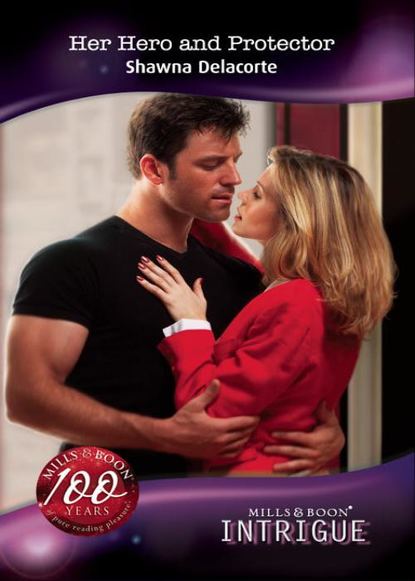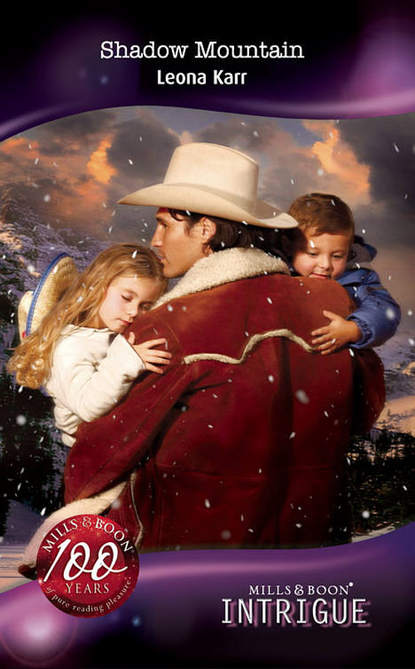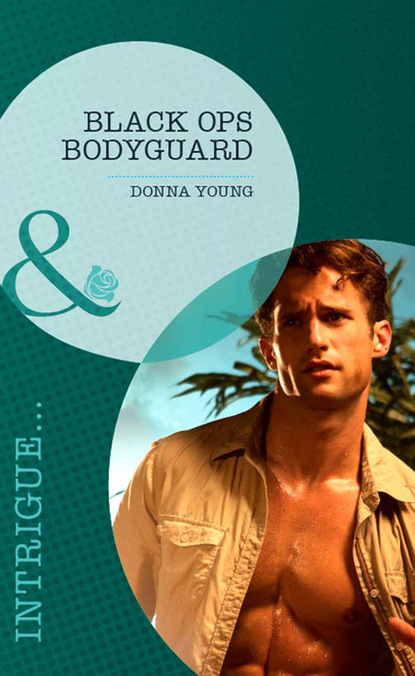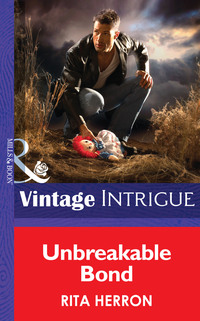
Полная версия
Redemption At Hawk's Landing
He’d morphed into a mountain of a man with big, broad shoulders, a muscular body, the deepest amber eyes she’d ever seen and an all-gruff, masculine exterior. His tanned skin and dark hair accentuated his high cheekbones, square jaw and the cleft in his chin.
He had dimples, too, when he smiled, although that smile had disappeared after his sister went missing. It was still gone.
In fact, his frown suggested he found her lacking.
His mother’s hateful words had been imprinted in her brain forever. “You’re trash, Honey Granger. You’re not welcome at Hawk’s Landing. My daughter is not going to associate with the likes of you.”
“Have you decided on arrangements?” Harrison asked, jarring her from the painful memories.
Honey shrugged. “According to Daddy’s lawyer, Truitt Bennings, my father wanted to be cremated.” She was surprised that her father had a will, but grateful he did. He’d left the house to her. Owning it outright would make it easier to sell.
She didn’t intend to stay in this town any longer than necessary.
“I can call the crematory for you if you want,” Dr. Weinberger offered.
“Thank you,” Honey said. “I’d appreciate that.”
Dr. Weinberger gave her a sympathetic smile. “Do you want to see him now?”
Did she? No. When she’d left town, she’d sworn never to see or speak to him again.
But some inner voice beckoned her to at least say goodbye. After all, he was her father. And he hadn’t deserted her as her mother had, although some could argue that drinking himself into a stupor was his way of abandoning her and reality.
She stood, lifting her chin and putting on a brave face. “Yes. Let’s get it over with.”
Harrison and the doctor exchanged an odd look, but neither commented. She almost asked what was going on, but decided they’d probably discussed her before she’d arrived. Gossip in small towns was hard to overcome. For all she knew, everyone in Tumbleweed knew of her arrival.
She lifted her chin. Dammit, she didn’t care what the people here thought of her anymore. She’d made herself a new life, and she was proud of who she’d become.
Still, their quiet looks made her uneasy and reminded her of the reason she hated Tumbleweed.
Dr. Weinberger led her from the office through a set of double doors past a room labeled Autopsy, then into a smaller space. She took a deep breath to brace herself, then followed him over to a steel gurney. The room was so cold that she shivered.
Her father lay beneath the draped cloth.
The ME stepped to the opposite side of the table. “Are you ready, Ms. Granger?”
She nodded.
He pulled the cloth away from her father’s face, but she didn’t react. It was as if she was looking at a stranger, someone she’d met years ago, someone who hadn’t meant anything to her. Age had turned his hair gray, carved deep lines in his craggy face, and he’d lost weight. The yellowish-gray pallor of his skin coupled with the bruises on his face looked stark beneath the harsh lighting.
“What happened?” she asked. She’d assumed it was the liquor, but his face looked like he’d been in a bar fight.
The doctor shifted. Beside her, Harrison’s breath puffed into the air. “I found him at Dead Man’s Bluff.”
Honey looked at him for confirmation. “Why was he there?”
“I don’t know,” Harrison said.
“How did he die?” Honey asked.
“Cause of death was head trauma,” Dr. Weinberger said.
“So he was drunk and fell?” Honey said, disgusted.
A tense second passed. Harrison cleared his throat. “He didn’t simply fall, Honey. It looks like he was struck by a rock then pushed over the edge.”
Shock bolted through Honey. “You mean someone murdered him?”
“I’m sorry,” Harrison said. “But yes, it looks that way.”
Now she understood the odd looks between the men.
Her mind began to race. Her father hadn’t had any friends in town. A lot of people didn’t like him, but no one hated him enough to kill him.
Except...
Her gaze met Harrison’s. Except for his family.
* * *
HARRISON SAW THE wheels in Honey’s mind turning. She was jumping to the same conclusion that everyone else would—that one of his family members might be responsible.
“Do you know who pushed him?” she asked, tactfully avoiding an accusation.
He didn’t have the answer to that question.
“Not yet.”
He would find the truth, though. That was his damn job.
“Would you like a few minutes alone?” Dr. Weinberger asked.
Another tense heartbeat passed. Honey twisted her hands together, looking fragile for a moment, then she gave a slight nod.
“Let us know if you need anything,” the ME said.
For some reason, Harrison was reluctant to leave her alone. She’d grown up in a house filled with turmoil. Had suffered at the hands of her mother and father. Had left nearly two decades ago.
And now she’d traveled back here alone to say goodbye to the man who’d failed her.
Compassion for her made him reach out and squeeze her arm. “Are you okay?”
A sad smile curved her mouth. “Of course. I’ll just be a minute.”
Harrison nodded, then followed the medical examiner into the hallway. Worried about her, he turned and watched her through the window in the door, unable to leave.
“She seems to be handling it okay,” Dr. Weinberger said in a low voice.
Either that or she was good at acting. He had a feeling Honey Granger had done a lot of that over the years—pretending the rumors and gossip hadn’t hurt her. But deep-seated pain colored her eyes.
He had the sudden need to make things right for her. To strip her of the anguish she was suffering.
But he didn’t have a clue as to how to do that.
Besides, she would probably leave town as soon as she handled the details surrounding her father’s death, the cremation and possibly the sale of his house. Unless she decided to move back and live in it.
A sardonic chuckle rumbled in his throat. He didn’t see that happening. Ever.
“Did you find any forensics?” Harrison asked.
Weinberger crossed his arms. “Slivers of rock and dirt were embedded in the back of Granger’s head where he was struck. My guess is that he was hit with a rock from the bluff.”
Harrison shifted. “That would imply the murder wasn’t premeditated, that something happened on that ledge that triggered the other party to attack.”
He’d have to go back to the bluff, look for that rock, see if there were fingerprints on it.
“Anything else?” Harrison asked.
“Dirt under his fingernails and a short brown hair.”
Harrison gave a nod. “Send it to the lab. That hair may belong to our killer.”
Chapter Three
Her father had been murdered.
That fact echoed in Honey’s head as if someone was pounding the words inside her skull.
Who had killed her father? And why?
Emotions welled in her chest as she studied his cold body. Eighteen years had aged him, but the alcohol had intensified the process, adding another ten years. The bruises and contusions on his face looked stark beneath the lights. His skin was a sallow yellow, lips a bluish purple, eyes closed as if...as if he was at peace.
Maybe he finally was. She’d never understood the reason he drank so heavily, why his moods changed erratically, and she’d blamed herself. He missed her mother... He hadn’t wanted a child... He didn’t know how to raise a daughter, especially alone... She’d been a bad kid.
On a more rational level, as an adult, she realized he’d battled inner demons that she knew nothing about; that alcoholism was a disease. But his behavior and his rejection had hurt.
Tears pricked at her eyes, and she ached with a sudden longing to go back in time. To a time when she was little, and he’d carried her fishing at the pond. He’d surprised her that day by packing a picnic and taking her on a canoe ride. For a couple of hours she’d felt like she had a real family. He’d taught her how to cast a fishing rod and laughed when she’d been squeamish over baiting her own hook with worms.
Yet that precious memory had been ruined when he’d pulled out a bottle of whiskey, consumed most of it and passed out in the sun. She’d fished alone and played at the edge of the water and pretended everything was okay. She’d gotten good at pretending.
But then night set in and the wilderness had seemed vast and lonely and...creepy. She’d been terrified as darkness encroached and the howl of coyotes had echoed around her. She’d shaken him to wake him up so they could go home, but he’d been belligerent, cursed her then backhanded her for crying.
He’d also been so inebriated that he’d woven all over the road and nearly crashed into another car head-on. He’d blamed that on her, as well.
She shivered. When they’d finally made it home, she ran into her bedroom, locked the door and hid there all night and half of the next day, too afraid to come out and face his wrath.
Honey straightened, banishing the memory to the attic of her mind with the other troubling ones that she’d packed away. No use dwelling on them. You had to play with the cards you’d been dealt.
She’d accepted her father for what he was long ago, but a sliver of hope had remained that one day he might change and she’d have the loving, caring father she’d always wanted.
Now any chance of that was lost forever.
Resigned and swallowing back tears, she placed her hand against his cheek. His skin felt leathery, rough, cold in death. She had an insane urge to kiss his cheek, but refrained.
Instead she whispered, “Goodbye, Daddy,” and left the room, shutting out this image and the pain as the door closed behind her.
* * *
HARRISON CONTEMPLATED HIS conversation with the ME. If they identified Granger’s killer, he could solve this case quickly. Then Honey could leave and take her tempting, pretty little butt with her.
Harrison phoned the crime scene investigator and spoke with the lead CSI, Roger Watkins. “Did you find any forensics at the bluff where Waylon Granger’s body was discovered?”
“Nothing on the ledge. No definitive footprints, either. We did collect a button. Looks like it came from a flannel shirt. Not Granger’s and no print on it.”
“Hell, it could have been there no telling how long.”
But he had to revisit the crime scene. If Granger had been hit by a rock, the perp could have tossed it far enough away so CSI hadn’t found it. That rock could be key evidence.
The door opened and Honey appeared. Harrison’s gut tightened at the strain on her face.
“I should be finished with the autopsy by tomorrow, then I’ll contact the crematorium,” Dr. Weinberger said.
“Thanks.” Honey folded her arms around her waist. “I’ll be at my father’s house for a couple of days. I’m going to see what needs to be done to get it on the market.” She lifted her gaze to Harrison, a world of old hurts flashing in her big eyes, then directed her comment to the ME. “Harrison—the sheriff—has my number if you need me.”
Dr. Weinberger gave a quick nod. “Yes, ma’am.”
“I’ll walk you out, Honey,” Harrison said as she started toward the door.
She stiffened as he fell into step beside her, and they walked down the hall and rode the elevator in silence. Even though the heat was stifling, Harrison welcomed the fresh air as they stepped outside. Honey’s shoulders relaxed, too.
He followed her to a white minivan emblazoned with a graphic of a house and a company name, Honey’s Home Makeovers.
“You own your own business?” Harrison asked.
The anger on Honey’s face dissipated slightly and a small smile titled her lips. “Yes. Don’t sound so surprised.”
Her defensive tone made him feel like a heel. “I didn’t mean it like that.” He shifted on the balls of his feet, hoping she’d elaborate but she didn’t.
The familiar wary expression returned. “You said my father was pushed over that ledge. Do you have any idea who did it?”
Her gaze met his, the past once again creating an impenetrable barrier between them.
“I’m investigating.” He jammed his hands in his pockets.
She studied him for a moment, her lips pressed into a thin line. He wanted to see that smile again, and found himself wondering if she had someone special in her life, someone she graced with that smile all the time.
If she did, the guy was a lucky man.
She hit the key fob to unlock her van, and he closed his fingers around the handle to open the door. His arm brushed hers, and she startled, then stepped away from him as if he’d burned her.
“Sorry,” he murmured.
She shrugged as if she realized she’d overreacted. Then she slid into the driver’s seat.
He caught the door with his hand before she could close it. “Did you and your father stay in touch?”
She heaved a breath, filled with wary resignation, then shook her head. “No, I haven’t spoken to him in years. Why? You don’t think I had something to do with his death?”
He should consider that theory, but no, it hadn’t occurred to him. “No,” he said honestly.
“Good,” she said sharply. “Because I have a life in Austin, Harrison. I have my own business and love what I do. When I left here, I left everything behind. That included my father.” She clenched the steering wheel with a white-knuckle grip. “No matter how much I despised him, there’s no way I would have jeopardized my career to get back at him, especially now.” A sad expression washed over her face. “He wasn’t worth it.”
She started the engine, pressed the gas and sped from the parking lot.
Harrison stood for a moment, absorbing her statement. Sad that she didn’t feel more grief toward the old man. But then again, Granger didn’t deserve it.
He glanced toward the mountain. Remembering that the murder weapon was most likely a rock, he walked to his SUV, climbed in and drove to Dead Man’s Bluff. He parked, then scanned the area, tormented by the memory of that fateful night Chrissy went missing. The fact that her body hadn’t been found should have given him hope that she was alive, but...he knew the odds.
Was her disappearance somehow tied to Waylon Granger’s murder? He didn’t see how it could be.
But he had to know.
He pulled on latex gloves and climbed from his SUV. The sun beat down on him as he combed the parking area and weeds beside it. He searched the overgrown bushes flanking the old mine, and the weeds jutting up by the swimming hole.
Nothing.
Of course the killer could have tossed the rock into the swimming hole and it could be under water. The wind whistled from the cave, that ghostly sound that stirred the rumors surrounding the place, and he retrieved his flashlight from the truck.
Determined to explore all possible avenues before diving into the swimming hole, he crept inside the entrance to the mine. It was dark as hell inside, cold, and smelled of wet moss, dirt and decay. The scent of urine was almost overpowering, suggesting that curiosity seekers not only ventured inside but used it as a bathroom, too.
Ignoring the stench, he raked the flashlight along the wall and searched the floor. The opening was clear. Cigarette butts, beer bottles and evidence of discarded drug paraphernalia.
He picked up a stick and raked away some of the trash then made his way to the corner where he found an old sleeping bag, two empty tin cans that had held beans and a metal coffee mug. Had someone been living inside?
He shone the light along the wall and spotted a small cluster of rocks in a circular pattern. Burned sticks lay in a pile of ashes in the middle.
His light illuminated the corner of the pile, and he noticed a rock shoved into the debris. He stooped down and raked away the ashes with a stick.
It definitely was a rock, a sharp, jagged one. He peered closer. Something red stained the side of the stone.
He pulled the rock from the pile and examined it. It was almost as large as his hand and could have been used as a weapon.
He sniffed the red substance. It was sticky and held a metallic odor—definitely blood.
Granger’s? He’d have it tested.
Pulse jumping, he carried it from the cave, bagged it and stowed it in his truck. If there were prints on it, he might be able to nail the killer.
His gut tightened with dread.
He hadn’t yet told his family about Granger’s death. It was time he did.
He glanced at the rock on the seat of his truck with trepidation. He just hoped he didn’t find one of their prints on that rock.
* * *
HONEY PASSED THE sheriff’s office as she drove through Tumbleweed. She couldn’t believe Harrison Hawk was sheriff. She’d expected him to leave this small town for something bigger and better. Harrison was smart, had been popular, had girls swooning over him.
His bad-boy sexy, flirty ways had been appealing. But after his sister disappeared, he’d become angry, moody and sullen.
His close-knit family had fallen apart.
Several mothers and their children played in the park at the edge of town where they’d added splash pads for the kids to cool off in the summer heat. Her heart squeezed as a little girl in pigtails with pink ribbons flying in the wind ran toward her mother and threw her arms around her.
Ribbons... Chrissy had loved ribbons in her hair and had collected a box of assorted colors.
Honey turned down the side street that led to Lower Tumbleweed, the street where her father lived. Technically the area was named Lower Tumbleweed because it sat in the lower valley. Although the name held another connotation, implying the families who lived there were lower-class. The families on the street were poor—the children received free lunches and free dental care, and they lived off food stamps.
Taunts from other kids about Lower Tumbleweed echoed in her head.
God, how she’d hated the cruel comments. Had hated that the kids at school knew so much about her. Worse, that the gossip about her mother being a tramp and her father a drunk were true.
At least her best friend at the time, Cora Zimmerman, had a mother who worked hard for a living. Not that Cora hadn’t gotten teased, too, but at least her mother’s job at the hair salon had been reputable.
She hadn’t thought about Cora in a long time and wondered where she was now.
The street sign for her father’s road had been run over and lay on the ground. Tire tracks marred the faded green metal. She knew the turn, though, and made it, her throat filling with disgust when she spotted the dilapidated, run-down houses and yards.
The houses had been small and worn eighteen years ago. Weather and lack of care had sent them downhill. Porches were sagging, boards rotting, paint peeling off, concrete driveways cracking, shutters dangling askew.
Weeds and dead bushes choked the yards, and debris from a recent storm littered what had once been grass. Most of the houses were vacant now, and a couple were boarded up as if they’d been condemned.
Her father’s sat like an eyesore at the end of the street. The once-white wood had yellowed, and her father had substituted a lone brick to replace the broken steps to the porch. She sighed as she parked, and ran a hand through her hair.
She bought houses like this and completely renovated them, turning them into showcases. For a brief second an image of gorgeous little bungalows filled her vision. She could make this neighborhood into something to be proud of.
But every house needed to be gutted.
Sweat beaded on her neck as she climbed from the van.
No. She would not think about renovating the neighborhood. She didn’t intend to stay here a minute longer than necessary. And she sure as hell didn’t care if someone bulldozed every house on the street.
Tomorrow she’d talk to the local real estate agent and see if any investors were interested in the properties.
But tonight she had to stay here.
The thought sent dread through her. How was she going to sleep in this nasty place? It had been bad enough as a child before she’d known better.
She should have booked a room at the local inn, but she hadn’t wanted to announce her arrival or come face-to-face with anyone else from her past.
Squaring her shoulders, she decided to check out the inside first. If it was unlivable, she’d try the inn.
Weeds clawed at her legs as she walked up to the porch. She climbed the makeshift brick step, then dodged holes in the floor as she crossed to the door. She jiggled it and it opened easily, then she stepped inside.
Nausea flooded her as her childhood rushed back. Images of her parents fighting hit her, along with the strong odor of cigarettes and booze.
It was a gut job. The threadbare sofa and chair her father had had when she lived here was falling apart. Cigarette ashes and empty liquor bottles testified to the fact that he hadn’t changed his ways.
The kitchen was outdated, the cabinets sad looking, the Formica kitchen table and counters greasy and splattered with food stains.
Anger at her father for letting the place reach such disrepair railed inside her. She’d seen worse on jobs, but this had once been her home, albeit a dysfunctional one, but at least it hadn’t been filthy. Because she had cleaned it.
She passed the kitchen, then stopped in the hallway in front of her father’s bedroom. The faded chenille spread remained, stained and dotted with cigarette burns. The metal bed was rusty, the curtains dingy, her father’s work boots and clothes piled on a chair in the corner.
She forced herself to go into her old room. He hadn’t changed the pink-and-white-gingham bedspread or curtains. Her teddy bear and dolls still sat on the shelf on the wall. She spotted the jewelry box she’d gotten for Christmas the year before her mother left, picked it up and sank onto the bed.
The springs creaked beneath her weight. Her mother had loved costume jewelry and had given Honey some of her pieces when she’d grown tired of them. Honey had called them her treasures and had played dress up in them, pretending to be glamorous.
A bitter chuckle rumbled from her chest.
She’d never been glamorous. Instead her attempts at dressing up her homely clothes as a teenager had only made her look cheap. No wonder Harrison’s mother hadn’t wanted Chrissy around her.
Unable to resist, she opened the jewelry box to see what was left of the costume jewelry.
Instead her heart leaped.
On top of the pop beads and clunky gold-and-rhinestone pieces lay a yellow ribbon.
Nausea churned in her stomach.
Chrissy had been wearing yellow ribbons the night she’d disappeared.
Chapter Four
Honey draped the shiny bright yellow satin across her hand. An image of Chrissy’s pigtails, tied with yellow ribbons, flashed behind her eyes.
Little Chrissy singing, “You are my sunshine, my only sunshine,” as she skipped across the yard.
One day it would be yellow ribbons, the next day purple or red or blue.
Sometimes she wore ribbons of different colors and called them her rainbow hair.
She had been such a happy kid, all smiles and singing and curiosity. She had sneaked over to Honey’s one day and asked Honey to show her how to wear makeup. Honey had thought it was sweet. Since the little girl only had brothers, she’d figured Chrissy needed a female in her life to teach her girl things.
In spite of Chrissy’s pleas for layers of blush, eye shadow and lipstick, Honey had brushed her cheeks with a light powder, applied a pale pink gloss on her lips, then a very faint dusting of sparkly white eye shadow. Chrissy had thought she was beautiful.
But Chrissy’s mother had stormed over to Honey’s that night and ordered her to stay away from Chrissy. Mrs. Hawk finished by saying she didn’t intend to allow Honey to make Chrissy look like a tramp.
Tears blurred Honey’s eyes. She’d realized then that the gossip about her mother and father extended to her, and that she would never fit into the same social circle as people like Harrison Hawk and his family.












